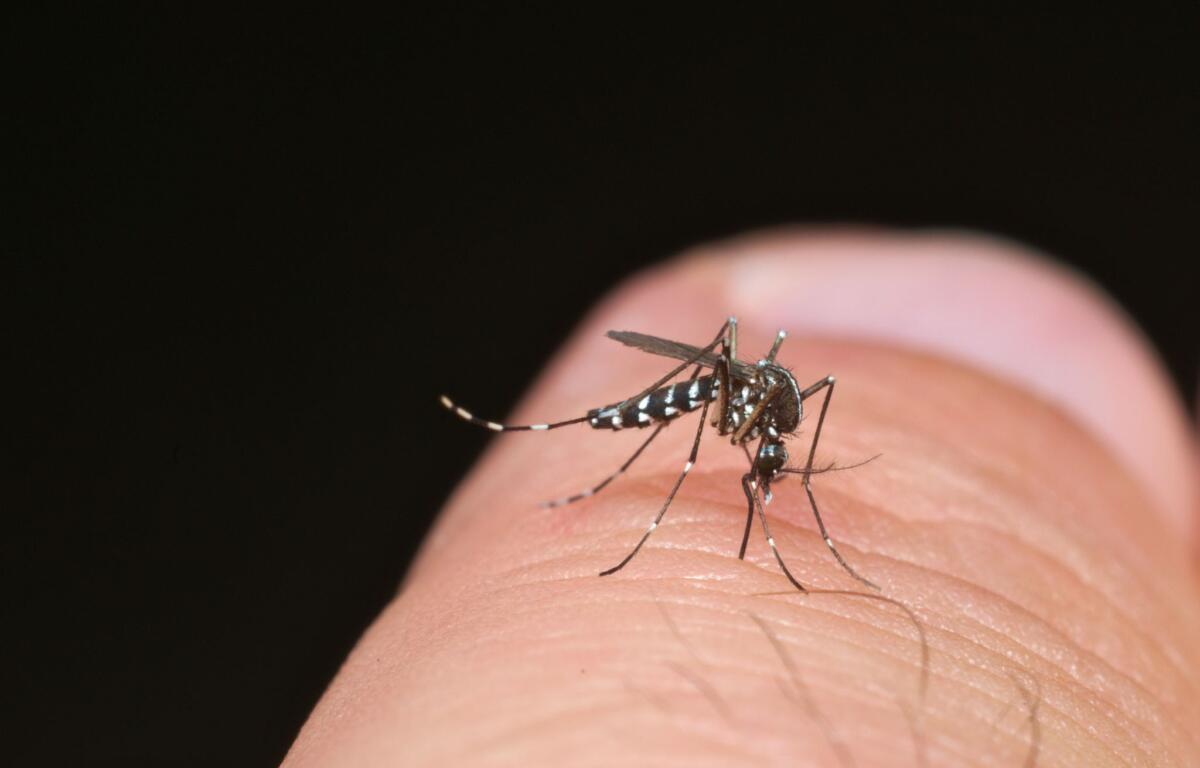Jonesboro, AR – (JonesboroRightNow.com) – June 11, 2024 – If it seems like mosquitos are pestering you earlier than normal, you’re right.
“The rice went to flood about two to three weeks earlier than usual. The mosquitoes got here a little quicker, and that’s the earliest I’ve seen them in years,” said Jim Starks, contract supervisor for Vector Disease Control.
Vector has a contract with the City of Jonesboro to provide annual mosquito control efforts. Starks says Vector has been servicing Jonesboro for the last 30 years.
Starks says during a typical year mosquitoes wouldn’t be a problem quite this early. “Usually, they start to hit around the 4th of July all the way through July, August, and early September.”
“We usually don’t start spraying with trucks real heavy until about the last week of June, but we’ve been spraying pretty heavy since about the first week of June.”
Starks says Vector has 12 spray trucks that operate out of the Jonesboro office. But he said not all of the trucks work in Jonesboro. “We also have contracts in Brookland, Paragould, Walnut Ridge, Pocahontas, Trumann and others,” he said. “But usually on an average night we have four or five trucks in Jonesboro.”
In addition to spraying with trucks, Vector also utilizes airplanes. “Normally, the first flight is just before the fireworks celebrations on July 4. After that it’s 8 consecutive weeks and if we need more, we’ll do more,” Starks said.
Starks said some people have a misunderstanding about how the chemical works. “A lot of people think that as long as the mosquito flies through that fog, it’s going to kill him. But that’s not true,” Starks said. “Inside that fog are individual droplets from 18 to 20 microns. That actual drop has to make contact on that mosquito. If the droplet doesn’t contact the mosquito and falls on the ground, it’s over. It’s not a residual chemical.”
Vector uses the same chemical in the truck sprayers that the company uses with the air flights. “With the airplane you get a lot more coverage into the canopies of the trees.”
At the April 16 Jonesboro City Council Public Safety Committee meeting, Starks was asked whether or not he thought expanding the airplane spray area further out away from the city limits would help the mosquito control efforts. “I told them most of the Jonesboro mosquito problems come out of the Southwest and South because of the prevailing winds in the summer,” Starks said. “Our plans are to maybe extend our treatment area out about a mile or two South and Southwest of town and see what that does.”
Starks was told at the April committee meeting to provide the city with the cost of expanding the aerial coverage. He said Vector hasn’t given the city a price yet. “I’m not involved in that area,” Starks said. “If we don’t come to some kind of agreement, maybe we can go an extra half a mile or so within the current agreement and try. But if you’re going to spray for two or three extra miles out, that adds up. We still got a couple of weeks before our first aerial, so I think we’ll work something out.”
Vector uses mosquito light traps to assess the number and type of mosquitoes that are populating. “We trap the mosquitoes. They will bring those back here to the shop and I will count and ID those bugs and that gives us an idea of the population, what species they are, if they’re coming out of the rice, if they’re coming out of the roadside ditches and stuff like that,” Starks said. “We can tell if the species is one that bites around the clock, or if it’s the species that only bites in the daytime.”
Stark said there are about 20 different species of mosquitoes in the Delta. He said this week he is seeing a rice field mosquito, Psorophora columbiae. He said it’s a big black mosquito with striped legs. “They will bite day and night. And that’s usually where we get most of our complaints because people are trying to work in their gardens and flower beds during the day. And these mosquitoes will tear you up during the daytime.”


